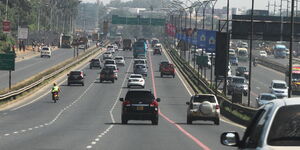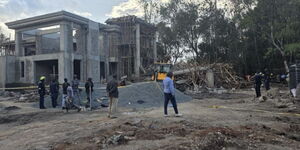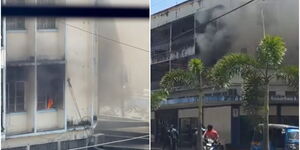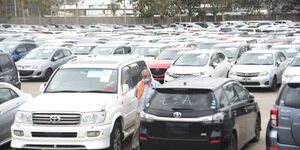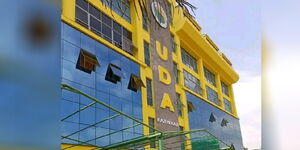Kenyans have raised alarm about a worrying trend involving the transportation of liquefied petroleum gas (LPG) using undesignated means, which is against the law.
These concerns were brought forward on Wednesday, April 2, during the Public Education and Stakeholder Engagement Forum in Isiolo County, where officials flagged some unsafe LPG practices in the county.
During the session by Senior Public Education and Advocacy Officer Peter Kirukmet alongside Senior Surveillance Officers Davis Adul and Leah George, the county fire department officials raised alarm over an emerging trend of the transportation of LPG cylinders in public service vehicles.
The fire department observed that this was prevalent in many rural areas, presumably because of the less strict enforcement of regulations.
"County staff from the fire department raised concerns over the transportation of LPG cylinders in public service vehicles, a common practice in many rural areas that poses a significant safety risk to the general public," the Energy and Petroleum Regulatory Authority (EPRA) noted in a statement.
Due to LPG's explosive potential, the fire department noted that transporting such delicate substances in PSV further heightened the risk of disaster, particularly because of the cylinders' pressurized nature.
The trade of gas cylinders against the law has also been a prevalent challenge for EPRA, with a majority of cylinders being transported on PSVs lacking proper branding - an indication that they could have been refilled at rogue stations.
Because they are not professionally handled, such cylinders pose a huge risk of explosions and fires.
This latest call to EPRA comes even as the authority battles to bring back sanity to the LPG sector.
As recently as March, the authority revealed it had adopted the use of CCTV cameras to monitor LPG operations. Gas refill plants were effectively denied permits until they adopted the cameras.
Another mandatory requirement by EPRA is a license for anyone transporting more than three filled LPG cylinders. Vehicles carrying LPG containers must also have at least two service dry powder fire extinguishers.
Further, EPRA only mandates authorized brand owners to refill their LPG containers a regulation set in place to curb illegal LPG operations.


